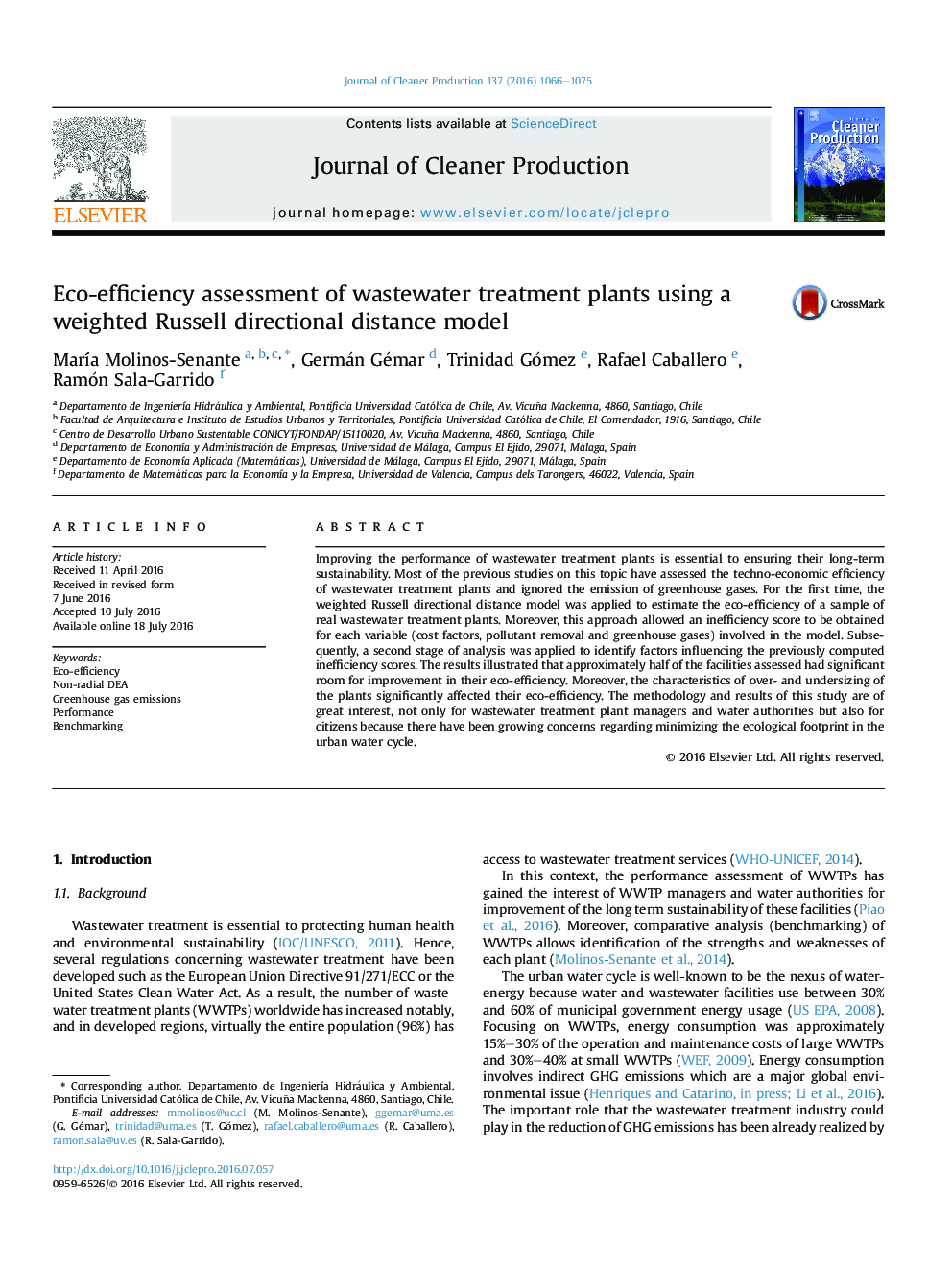| Article ID | Journal | Published Year | Pages | File Type |
|---|---|---|---|---|
| 8101093 | Journal of Cleaner Production | 2016 | 10 Pages |
Abstract
Improving the performance of wastewater treatment plants is essential to ensuring their long-term sustainability. Most of the previous studies on this topic have assessed the techno-economic efficiency of wastewater treatment plants and ignored the emission of greenhouse gases. For the first time, the weighted Russell directional distance model was applied to estimate the eco-efficiency of a sample of real wastewater treatment plants. Moreover, this approach allowed an inefficiency score to be obtained for each variable (cost factors, pollutant removal and greenhouse gases) involved in the model. Subsequently, a second stage of analysis was applied to identify factors influencing the previously computed inefficiency scores. The results illustrated that approximately half of the facilities assessed had significant room for improvement in their eco-efficiency. Moreover, the characteristics of over- and undersizing of the plants significantly affected their eco-efficiency. The methodology and results of this study are of great interest, not only for wastewater treatment plant managers and water authorities but also for citizens because there have been growing concerns regarding minimizing the ecological footprint in the urban water cycle.
Related Topics
Physical Sciences and Engineering
Energy
Renewable Energy, Sustainability and the Environment
Authors
MarÃa Molinos-Senante, Germán Gémar, Trinidad Gómez, Rafael Caballero, Ramón Sala-Garrido,
